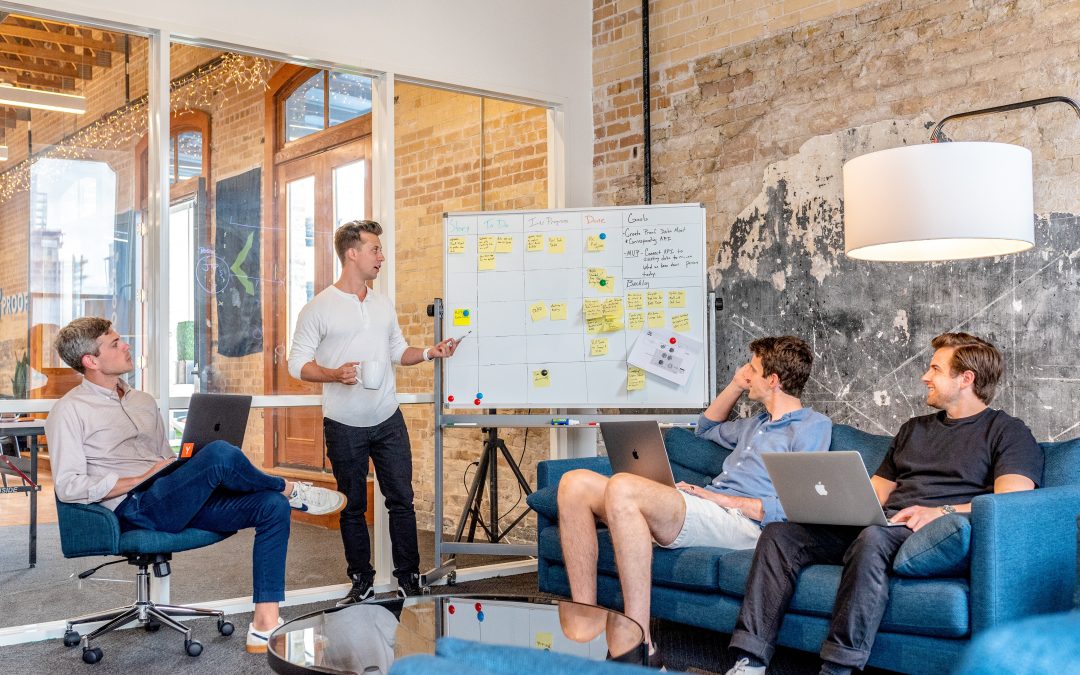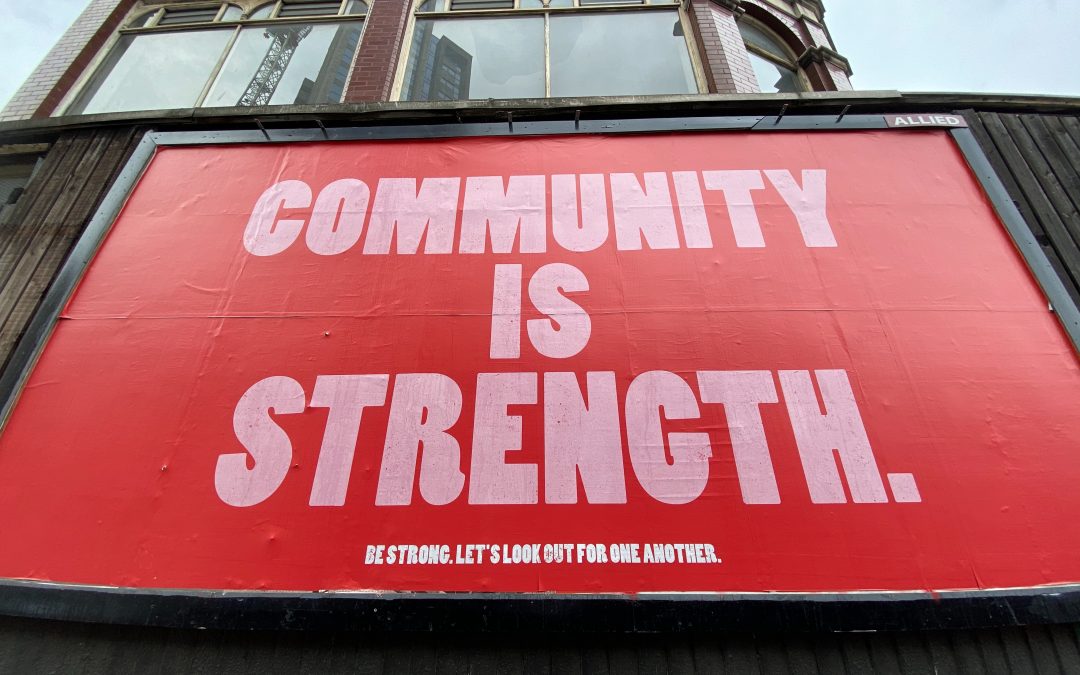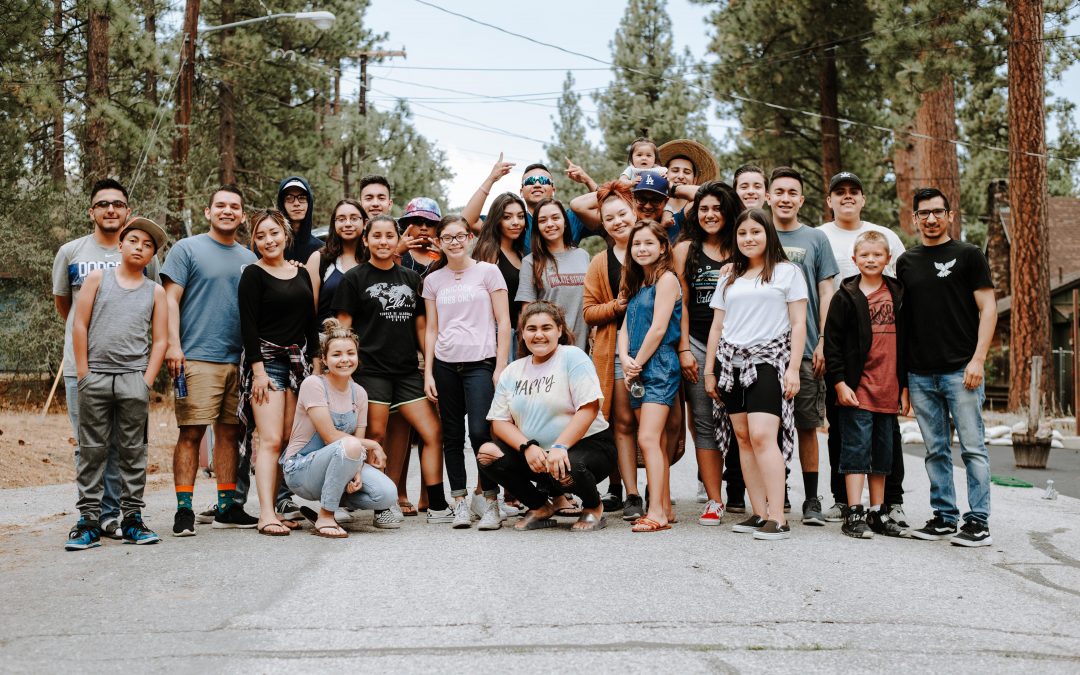
Happy Anniversary, Fedora!

Many congratulations to my friends in the [Fedora](https://fedoraproject.org/) community for your 10th anniversary!
Fedora is such an important part of the wider Open Source and Free Software community and filled with many, many good people doing great work. I hope you all take at least a little time away from the coalface to celebrate today!
Many warm and happy congratulations!

Rock For Water
I am running a fund-raising campaign for [WaterAid](https://www.wateraid.org/) to provide clean and sanitary water for poorer parts of the world. Dirty water is the source of so many health problems in the world, and I hope I can help a little in the wider cause.
To this end I have written and recorded three acoustic rock songs (and a bonus fourth) that I am making available under a [Creative Commons Attribution ShareAlike](https://creativecommons.org/licenses/by-sa/2.0/) Licence. I have made the songs available as MP3, Ogg Vorbis, and FLAC, and I would like to encourage you to download them and if you like them to please donate to the fund-raiser.
For those of you familiar with my metal music, these are really very different songs; they are acoustic, up-beat songs with clean vocals. I actually wrote these songs five years ago for my wife, so I re-recorded them ready for our five year anniversary and creating a fund-raiser seemed a great way to share the music with others and do some good.
You can download `.zip` packages of all the music:
* Download ‘Trilogy’ in MP3 format (25MB)
* Download ‘Trilogy’ in Ogg Vorbis format (29MB)
* Download ‘Trilogy’ in FLAC format (275MB)
You can also listen to four songs as MP3s in your browser here:
* Smile
* Wait For Me
* One More Day
* Endless Days
If you like the music please **[go and donate whatever you can afford](https://www.gofundme.com/rockforwater)!**

Bad Voltage
Some years ago I used to do a podcast called [LugRadio](https://www.lugradio.org). We did it for four years, delivered 140+ episodes, had 2 million downloads, and it spawned five live events. We wrapped it up as I moved to the USA, but then a little later [Stuart Langridge](https://www.kryogenix.org) and I experimented with a new show caled [Shot Of Jaq](https://www.kryogenix.org/shotofjaq.html). It was a different format and very focused on post-show discussion. We did 60+ shows.
We wrapped up Shot Of Jaq about three years ago and I had been getting the itch to do a show again. This time I wanted to do something more like LugRadio; four presenters, 45 mins to an hour long, include an interview, but this time for it to be a little less anarchic and more like [Top Gear](https://www.topgear.com/).

As such, I am delighted to present our new show [Bad Voltage](https://www.badvoltage.org).
Bad Voltage takes a fun and amusing take on technology, music, politics and anything else we think we and our listeners would find interesting. It is not just about Open Source and Linux, but will naturally gravitate to those topics based on our experience.
The show has an amusing line-up with a diversity of experience. It includes **Jeremy Garcia** (founder of LinuxQuestions), **Stuart Langridge** (Web Development Consultant, co-founder of LugRadio), **Bryan Lunduke** (NetworkWorld writer, co-founder of the Linux Action Show, creator of Linux Tycoon), and myself.
The show takes a fun, loose, and amusing take on the topics we present. It is 45mins to an hour long, features an interview, a review of a product/service/software, features some topics for discussion, a letters segment where we read out and respond to letters to the show, and more.
We launched the show (**Season 1 Episode 1 ‘Socially Awkward Headgear’**) on Thursday and it includes:
- Diaspora* and Identica, open-source social networks: why did they not make it into the mainstream, and does it matter?
- Review: Cards Against Humanity, a “free party game for horrible people”
- Oculus Rift, the virtual reality headset for gaming: gimmick or the next big thing?
- Interview: tech journalist Steven J. Vaughan-Nicols
**Go and [check it out here](https://www.badvoltage.org/2013/10/24/1×01/), and be sure to subscribe to it in your fave podcasting client or on iTunes!**
The response had been fantastic. We have had over 60GB of downloads, 2000+ people check the show out, 120+ people join our [Google+ Community](https://plus.google.com/u/1/communities/112243430378992034792), 90+ people [join us on Twitter](https://twitter.com/badvoltage). We also have ‘#badvoltage’ on Freenode. Our community is forming, and they are cool people…they are Bad Voltage people. 🙂
Bad Voltage is all about the community, so be sure to come and join us and send over your feedback and thoughts on the show to [email protected] – we will read your emails out on the show and we really want to tighten up the format and make it as good as possible, so your thoughts on what works well and what works less well is appreciated.
Thanks!

Convergence In The Cloud
Many of you will have heard about Ubuntu’s convergence goals on the client side — running a single, consistent code-base and experience that adapts to phones, desktops, tablets, and TVs…but are you aware of our *convergence on the cloud*?
Ubuntu and our cloud orchestration service, [Juju](https://juju.ubuntu.com), provides a platform and the tools to be able to deploy your service (from a simple blog to a full enterprise and production deployment) across a range of clouds…be it a public cloud, private cloud, or bare metal. Prototyping, staging, deploying to production, and scaling up are simple.
At the heart of Juju are the charms…the range of components that form a service (e.g. WordPress, Hadoop, Mongo, Drupal etc). Inside each charm is an encapsulation of best practice from domain experts for each component that automates how charms relate together in your service. Best practice connected to best practice in a service that easily scales is the backbone of Juju.
In much the same way we are building a consistent experience and set of features that run across phones, desktop, tablets, and TVs, we are also building a consistent experience and set of tools for delivering services across different clouds, bare metal, or local containers. Ubuntu for clouds is not merely bound to a single cloud…the point is that what matters is your service and you can easily migrate your service between public and private clouds and bare metal. Again, a converged experience across multiple services.
On the client side this convergence means a more consistent user experience with no fragmentation, consistent platform for deploying content across devices that is cheaper to deploy, and makes multiple product lines available to vendors and builds institutional knowledge across different product lines.
On the cloud side this convergence means that you are in control of your service. When you or your staff know how to use Ubuntu and the cloud orchestration tools we provide (such as Juju), you are in control of your service and you can prototype and deploy it where you want easily, whether a private or public cloud or bare metal, scale out when required, and build consistent institutional knowledge.
What makes Ubuntu on the cloud even more interesting is that Juju GUI also crosses the chasm between service topology on the office whiteboard and a running service – you can literally draw your service and everything spins up effortlessly.
Ubuntu is all about convergence and bringing simplicity and power to our devices, to our clouds, and all powered by Open Source.

Reflections On Ubuntu 13.10
Ubuntu 13.10 is out, get it [here](https://www.ubuntu.com)!
This release packs some significant punch – we have the first version of Ubuntu for phones, Mir is shipping on the phone images, a new Ubuntu SDK, an entirely new app developer upload experience, new version of Juju, Juju GUI, smart scopes integrated into the desktop and phone, and more.
The build-up to 13.10 has been intense. Although our core values have remained unchanged, Ubuntu has evolved over the years as we have worked to solve the larger scale challenges facing a consumer and cloud Linux operating system. Interestingly, it feels like we have also changed in the intensity and ambition of how we build Ubuntu. Maybe this is hindsight lying to me, but release cycles seem more intense, more focused, and more ambitious than they have ever felt before. When I compare 13.10 with 11.10 it feels like two different beasts in terms of the goals, opportunities, and challenges we are looking to solve. I feel we are more ambitious in approaching the real challenges we need to focus on.
From a personal perspective, release day is always a mix of emotions. We all put our heart and souls into what we do. For most of us Ubuntu is not just a job or a hobby…it is a passion and a lifestyle; we are not just building software here, but building technological change. My passion for Ubuntu has always been connected to making Open Source available to all; Free Software code is interesting and important, but a lot less valuable if regular people can’t use it to enrich and improve their lives. Accessible, easy to use, safe, and secure Free Software helps people to learn, be creative, be productive, and live better lives. At the heart of this opportunity are communities with a shared sense of identity, mission, and belonging. Communities bring out the best in human beings…they teach us to share, to inspire, and to create together.
More than anything, communities make having a passion *fun*. Working together with others who share your passion is inspiring and motivating, and the Ubuntu community is a wonderful source of inspiration. I feel blessed to work with so many wonderful people every day, all over the world. Thank-you.
As such, release day always feels to me like the world is peeking into our fishbowl to judge how colorful our fins are. I have a pretty thick skin, but I can’t help feeling a little exposed when it comes to feedback about a new release. I care what people think about Ubuntu…I care that people feel as connected and inspired by it as I do. Conversely, given that a global community of volunteers feed into making Ubuntu, I feel somewhat accountable that those looking into our fishbowl appreciate the efforts of everyone who has contributed.
We should never forget that Ubuntu and Open Source is a *gift culture*. People take time away from their families, friends, and Grand Theft Auto V to help bring their passion to our community via the gift of their contributions. I always want release day to be a celebration of our wider set of efforts. This is one of the things I love about Ubuntu: it is fueled by fundamentally good people. We don’t always agree…but we all share the same gene that makes us want to make the world a better place with Free Software. The only difference is where we draw the lines in the sand about how we do that.
In Ubuntu 13.10 we have delivered the first major milestone in our convergence story of the future…that milestone is Ubuntu for phones. I am hugely proud of the team for what they achieved here. This was a ballsy and ambitious goal and everyone hit it with aplomb. We have work to do, but the core foundation is stable, secure, and very usable as a daily phone. I have been using my Ubuntu phone since May and I *love* it.
Some have felt that the desktop release of Ubuntu 13.10 feels a little thin on the ground in terms of features apart from smart scopes and a revised set of versions of the software we ship. This is a fair assertion, but remember that everything that went into the phone will ultimate hit the desktop: Unity 8, Mir, image-based updates, the developer platform, SDK, developer portal and more. This was a *significant* amount of engineering, all of which is laying the groundwork for a single, converged Free Software platform that runs across the phone, desktop, tablet, and TV. As such, while you might not see the technology applied to the desktop yet, we moved the needle significantly forward in achieving this.
On the server and cloud side we have seen significant improvements with Ubuntu 13.10 too. Ubuntu continues to be the most popular guest OS on the cloud and Juju has become more powerful and efficient than ever before. Our charm store has grown significantly in terms of the available charms as well as the capabilities of existing charms, and Juju makes it simple and easy to spin up a complex deployment and scale up and out where needed. This has been eased by Juju GUI which makes transitioning from the service topology on the office white-board to an active running service devilishly simple.
Our community has been at the core of all of these efforts. Just as one example, we had over 140 community members contribute to building the core apps for the phone (Calculator, Calendar, Clock etc). We have also had significant numbers of contributions of auto-pilot tests, countless Juju charms, hundreds of translations, documentation brought up to date, and many events organized to help our community grow and prosper.
Some people have wondered why I have focused members of my team so much on app developers and growing our charmers community. The reason is simple: for Ubuntu to be successful we need *awesome* content. We need great apps, services, music, videos, search results and more. People don’t use devices, systems and clouds because the shell looks nice, they use these systems to consume, create, and share things. Ubuntu is all about a focus on content, and apps and charms are a key part of this. Every app and charm enriches Ubuntu that little bit more, and as such we need to build a new community of developers who are passionate about Ubuntu being able to deliver their creative ideas and visions.
This work has not just been building buzz on Google+. My team architected much of the new app upload process, we ran the Ubuntu App Showdown to hammer the details out of the developer platform, we built [developer.ubuntu.com](https://developer.ubuntu.com) and our support resources, , ran the core apps programme, have been running the Juju charm contest, coordinating charm schools, and working with upstreams and developers to deliver their content. Our goal has been to make the developer experience on Ubuntu *world class*. We still have work to do, but I am so proud of the efforts of the team so far.
Where this counts strategically is that all of this work will ultimately feed into LoCo teams and elsewhere that may not currently feel we are spending too much time on (although rest assured in 14.04 we will focus on LoCos some more). By building an awesome content community it will give our LoCos a better, more fulfilling platform to share, advocate, and promote. In a world of limited resources, this is how I feel I can best use my team’s time.
Well, today is Thursday 17th October 2013 and we just shipped Ubuntu 13.10 for phones, servers, desktops, and clouds.
Tomorrow is Friday 18th October 2013 and we start work on Ubuntu 14.04. This is going to be our biggest LTS yet. You can join us to help us shape Ubuntu 14.04 at our next [Ubuntu Developer Summit](https://uds.ubuntu.com) on 19-21 November 2013 from 2pm-8pm UTC. Everyone is welcome, our summit is open to all and takes place online.
We have tremendous opportunity on the road ahead of us. We are laying down the foundations for a new future of convergence and cloud service orchestration. Today was an important check-point on our journey. Together as a community we have the opportunity to bring more and more technological change to people than ever before. So, go out tonight, celebrate, and tomorrow, let’s get the Ubuntu 14.04 train on the track and make it roar.
Thank-you everyone for all of your contributions.

Mir Running Now On Ubuntu On Phones
Just to share with my good friends on Planet Ubuntu…with update 90 on the Ubuntu for phone images Mir has been enabled by default.
So far everything is working pretty smoothly on my Nexus 4. There are some bugs, which is to be expected, but nothing major from what I can see. Now the team can continue to focus on integration, performance, and any outstanding issues before we hit the 13.10 release.
Nice work, Mir and Ubuntu integration teams!

Karma Machine: An Example of Ubuntu App Convergence
Today I took a short screencast of the [winner of the Ubuntu App Showdown](https://developer.ubuntu.com/2013/10/winners-of-the-2013-ubuntu-app-showdown/), a neat reddit client called *Karma Machine*.
In the video you can see the app first at the size of a phone as I demonstrate it’s features, and then I re-size it to the size of a desktop app. Karma Machine effortlessly re-sizes and adjusts to make the best use of the space available while exposing the same core functionality…all from the same code-base.
The app was written using the Ubuntu SDK, available from [developer.ubuntu.com](https://developer.ubuntu.com), which makes writing apps for phones, tablets, and desktops simple, and also demonstrates use of the [Ubuntu App Design Guidelines](https://design.ubuntu.com/apps) to make the app look and feel very Ubuntu.
Please note: the desktop convergence is not finished yet – we will optimize apps running on desktops soon (e.g. toolbars, scrollbars etc), but this video shows already how usable apps are.
See the video below (or [here if you can’t see it below](https://www.youtube.com/watch?v=trmcTrWROYA)):
We recommend you watch the video full screen
*Karma Machine* is available now from the Applications scope on the Ubuntu phones images.

The Next Level Of Ubuntu App Convergence
The 13.10 cycle has been one of the most hectic I have personally ever experienced with Ubuntu. In this cycle we have built the key ingredients in our convergence story…Unity 8, Mir, the Ubuntu SDK, a full app upload process…and this work is forming a strong foundation for the 14.x releases in which we will complete the first iteration of our full convergence vision.
In Ubuntu 13.10 my team has worked extensively on building our app developer community. I have talked in the past about the importance of app developers to Ubuntu and when we release 13.10 we will see an end-to-end developer story – from browsing [developer.ubuntu.com](https://developer.ubuntu.com), to downloading the Ubuntu SDK, to writing code, to full API and tutorial docs, to packaging an app easily and getting it in the app store where it will run secure and confined on an Ubuntu phone. I am proud of everyone who has invested so much work in this end-to-end story.

*Karma Machine, winner of the Ubuntu App Showdown*.
We are already seeing the fruits of this developer story with the wonderful apps that are available in the app store as a result of the Ubuntu App Showdown. Read more [about the winners of the showdown](https://developer.ubuntu.com/2013/10/winners-of-the-2013-ubuntu-app-showdown/).
## Building Full Convergence
In the 13.10 cycle we got our developer story in shape by flexing the muscles of the platform in a practical way. This was done largely in part by our core apps. As the core apps evolved we would discover bugs or missing pieces in our developer platform and fix them. Real programmers writing code helped us to understand where to fix and resolve issues.
In the Ubuntu 14.04 cycle I want to take this to the next level by flexing the muscles of our platform for writing apps that have both phone and desktop interfaces. This has two benefits:
1. It helps us make our SDK stronger and more powerful across the full range of converged form-factors.
2. It starts development of a powerful set of consistent, efficient desktop apps ready for when we are in a position to ship Unity 8 on the desktop.
Just imagine being able to run a slick, efficient, featureful app on your desktop, and be able to use the same app with a similar interface on your phone. Karma Machine, the winner of the Ubuntu App Showdown, is a good example of this:

*Karma Machine, running in Desktop mode*.
Today the Ubuntu SDK already has the ability to build apps that render differently on desktops, phones, and tablets, and many of the apps submitted in the app showdown already have converged interfaces (*Ubuntu Tasks, uNote, OMGUbuntu, CNotes, Memories, Connect4, Reversi, Blackjack, GitHub Client, RamSamSam Reader, Yad, uShopper, SaucyBacon, Karma Machine, Beru, Solitaire Games, uTranslate, Word Chain, StackBrowser, Counters, and uDraw*).
I want to work with these and other app developers so we can uncover any bugs, design problems, inconsistencies, and other issues. If you would be interested in working with us on these goals, please get in touch. Thanks!

Building an Ubuntu App Developer Advocacy Community
I have talked in the past about how critical I feel app developers are to the Ubuntu convergence story. If developers can go from *idea to implementation to publishing* quickly and easily, it will make the overall Ubuntu platform more attractive and featureful for users, partners, OEMs, carriers and more.
As such, we are working hard to make Ubuntu a platform where you can match your creativity with the tools you need to deliver your creative vision to others. This has included a powerful SDK, a simple and effective app upload process, a new version of [developer.ubuntu.com](https://developer.ubuntu.com) that will be landing next week, and more.
Now we are finalizing much of the core infrastructure (SDK, docs, knowledge, support, publishing) I really want to focus more and more on widening the awareness of Ubuntu as a powerful and fun developer platform.
There are all kinds of things we can do – video tutorials, training weeks, local tutorial schools, app contests, and more, and we are really keen to hear your ideas and look for those who want to help spread the word about Ubuntu as a powerful converged developer platform.
## How Do I Help?
If you are interested in helping, we are looking for ideas on [this pad](https://pad.ubuntu.com/rKMdhOjKTp); you will need to be a member of [this team](https://launchpad.net/~ubuntu-etherpad) to edit, so be sure to join that team first. Feel free to braindump your ideas for ways in which we can get out to more developers and help them realize their creative ideas. The more ideas the better!
Then, on **Tuesday 24th Sep at 3pm UTC**, we will be running a live Google+ Hangout meeting on [Ubuntu On Air](https://ubuntuonair.com/) to review the ideas and start making plans. If you add an idea to the pad it would be awesome if you could join the session too.
I would love to encourage you all to join and help build the developer platform of the future across phones, desktops, tablets, and more!

Re-Energizing LoCo Teams
I believe that in the entire history of Ubuntu we are at the most exciting time we have ever experienced.
With Ubuntu we set out with a clear mission: to build an elegant, beautiful, Free Software platform that brings powerful, easily accessible, technology to all. We are gritted in our determination around this mission.
All the pieces are starting to come together. A powerful converged platform, a beautiful user experience, a new SDK and app upload process, powerful cloud orchestration technologies, and a growing eco-system of users, app developers, and devops.
Awesome technology is not enough though. Silicon Valley is littered with the corpses of many great technologies that didn’t catch on. The key to successful, living, breathing technology is *adoption* and *passionate users and developers*.
## Building Adoption
LoCo Teams are a *critical* piece of how we drive this adoption.
LoCo teams are our front-line troops out there living Ubuntu and sharing it with others. If we have successful LoCo teams we will have a successful Ubuntu.
In recent years we have faced some challenges with LoCo Teams though. Fewer people have been participating in teams, we have some rather bureaucratic processes in place for how and where people can form teams, and LoCo teams are not as optimized for success as they could be. Put simple, I feel our LoCo Team community could benefit from stronger and more visible leadership.
I want to change this. I want to re-energize our LoCo community to bring out the best in our wider community and to open doors to more and more people who can be touched by Ubuntu. I am not talking about just welcoming Linux fans to LoCo teams…but app developers, content creators, devops, partners, general users, and more.
The potential is tantalizing.
For us to achieve this though we need a crisp strategy.
At UDS the other day we had a session that I found personally rather frustrating. At every UDS we always have a session about LoCo Teams, and there are always lots of ideas around what LoCo teams should be doing and how we can support them. These ideas are usually expressed as “*we should do XYZ*” or “*the problem with LoCo teams is XYZ and we need to fix that*”. We always have lots of ideas but few people are willing to sign up to work items to deliver that work.
Ideas are easy to have, delivering real practical solutions that drive improvements is harder, and we need more of the latter. We need people who are *willing to make change happen* in a practical way.
There is too much opportunity with Ubuntu and bringing technology freedom to people to let our LoCo Teams wither on the vine.
## Help Us Lead
Recently the [LoCo Council announced a re-election for seats on the next council](https://lococouncil.ubuntu.com/2013/08/28/call-for-nominations-to-the-loco-council-2/). The LoCo Council is the most natural place for this leadership to occur, and I want to encourage those of you who are willing to commit the time and effort to bring change to LoCo Teams to apply to join.
I want to transition the mental model of how the LoCo Council works from merely joining meetings and reacting to agenda items and tending to the business of the week. I want to see the council bring leadership, challenge the norms, challenge our bottlenecks, and build a culture of innovation and change around our LoCo Teams.
Our community is laden with great people who can bring this kind of leadership, and I want to encourage you to join the council.
We need people who are willing to commit more than providing +1 and -1 votes on our LoCo Council meetings, but people who want to think about the next generation of LoCo Teams and what work needs to be completed to achieve that vision, and commit to driving it forward. I would ask that only those of you willing to (a) lead and (b) commit time to actively participate in the strategy the council focuses on should apply. If you can only commit to joining the LoCo Council meetings and not driving strategy and leadership forward, please don’t apply to join.
This is not to suggest our existing and previous LoCo Councils has and have not been doing great work; I am tremendously thankful for their remarkable contributions. I just think we need to amp up our game, in much of the same way we have been amping up the Ubuntu platform. Now is our opportunity and we need to grasp it with both hands.
This is a tremendous opportunity for great leaders to have a real world-changing impact on Ubuntu and Free Software in general.
If you are excited about the opportunity of re-energizing LoCo Teams, bringing leadership, and challenging the norm, I strongly encourage you to apply. Please share your ideas for leadership and change in your application.
I am doggedly committed to helping to make our LoCo Teams successful and I have some ideas around how we do this when the new council is formed. I am looking forward to working with our new generation of leaders to help our LoCo Teams to do incredible world-changing work with an incredible world-changing platform.
